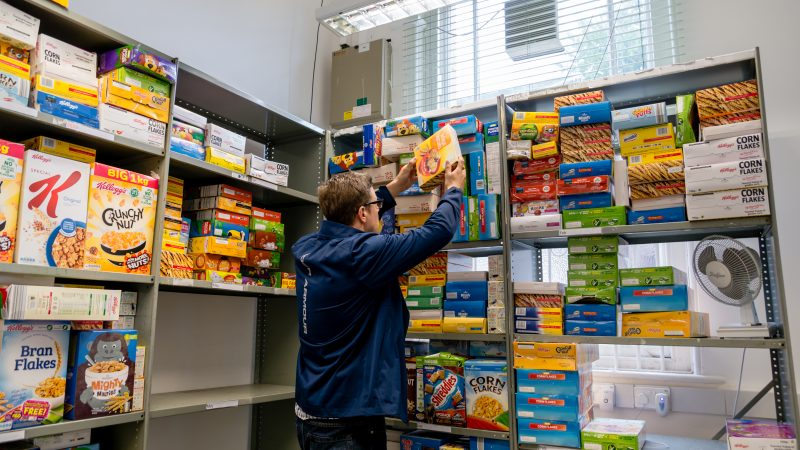
Every day, the charities, community groups and voluntary organisations that make up Britain’s social sector support those in need, campaign to improve the country and help to bring communities together. They employ more than 900,000 people and benefit from the dedication of many millions of volunteers.
The sector’s role throughout the pandemic in meeting the needs of the vulnerable and ensuring the successful delivery of the vaccine programme was invaluable. Now, amid an intensifying cost-of-living crisis and with a recession likely, charitable organisations are being called upon with increasing urgency to help people through this latest storm.
For months, food banks all over the country have had to cater to growing numbers of people queuing for the basics. Families and individuals are being squeezed by ever-growing costs and static income. It is a situation that is likely to worsen as energy bills soar in the coming months.
No child or adult should go hungry or have to turn to a food bank for help. Well run public services and a properly funded welfare system are two cornerstones of the more equal society Labour wants to see. But even with both of these in place, it would be important to support a strong social sector, ready to advocate for a more just society and to continue to build resilient communities.
Charities and community groups play a unique role as trusted service providers and advocates. When people are disaffected with local authorities or social services, it is often charities and community groups they turn to for help. Charities have the flexibility, empathy and speed of delivery that enables them to find and put in place the innovative solutions needed.
The Clink Charity is one such example. The charity, which provides catering training to offenders in prison so they can find work on release, started out with one kitchen in a Surrey prison in 2010. Its work has since caught the attention of policymakers having been shown to have a significant impact. A recent study by Pro Bono Economics found that the charity’s work generated at least £4.80 in reduced reoffending rates for every £1 invested. Earlier this year, it was announced that the government would be doubling the number of Clink Kitchens in prisons to 50 nationwide by the end of 2023.
Social sector organisations can also respond at speed in a crisis, often faster than the public sector, as we saw during the pandemic. And they can unlock untapped sources of funding from corporate and individual donors. The country’s charities, community groups and voluntary organisations face increasing demand, but there are serious barriers which prevent them from fulfilling their full potential. These challenges are being explored and potential solutions proposed as part of the law family commission on civil society, a groundbreaking two-year research study looking into how we can unleash the potential of civil society in the 21st century. The commission concludes its wok in December.
The commission, of which I am one of 16 commissioners drawn from the worlds of business, public policy, charity, philanthropy and community organising, has produced a range of innovative ideas and policy recommendations that a future Labour government may wish to consider. And its work has been given added momentum by the social and economic climate over the last two years.
The pandemic brought a perfect storm of pressures to bear on the sector, with one in four charities reporting a drop in income of more than 40% as lockdowns stopped fundraising activities overnight, just as demand for charity support increased significantly. Now, the sector is battling a second wave of challenges wrought by the cost of living squeeze.
At a time of such uncertainty and potential social division, the social sector is more important than ever before. It is expert at reaching the vulnerable on the fringes of society who often go unnoticed, recognising and seeking to meet their complex needs. A properly funded social sector can complement our public services and give the sector the space to continue its advocacy for a more inclusive society. Ultimately, a stronger social sector means stronger communities, stronger public services and a stronger Britain.




More from LabourList
‘I’m the Labour MP who beat Liz Truss. Here’s how the campaign to unseat her unfolded’
A year in power: The cabinet on their proudest wins and favourite moments
Southwark leader race ‘to be re-run over rule breach claims’ as left-winger wins